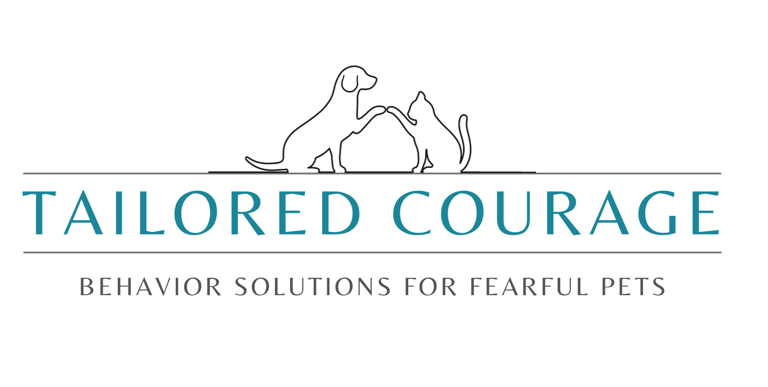Behavior and Training FAQ
Is online behavior consulting effective?
Yes, very much so! In fact, for fearful pets, the best thing I can do is not come into your home and force them to deal with another scary person. Getting a nervous animal in a car and bringing them to a training class is usually not a good idea either. You’ll be stressed, they will be stressed, and no one learns very well under that amount of stress. The class would be hindering our efforts instead of helping.
For obedience or trick training, in-person training works very well. For behavior modification, virtual sessions work best for the pet and the caregiver. We can spend the entire session setting goals, assessing where to start, forming a plan, and checking off each goal instead of your pet being afraid of my presence. We will tailor a plan that will help your pet build courage, and that is sustainable for the humans as well.
My approach?
Evidence based, fear free, force fee and fun!
What does a behavior consultant do? Is it the same thing as a trainer?
A behavior consultant typically addresses complex behavioral issues in animals, such as fear, stress, and aggression. They go beyond basic training tasks and focus on understanding the underlying causes of problematic behaviors. This involves assessing the pet's past experiences, health, and living conditions to develop a comprehensive understanding of the issues at hand. Behavior consultants often work with pets with severe behavioral challenges requiring a more nuanced and individualized approach.
On the other hand, trainers typically handle more straightforward tasks, such as teaching basic commands, addressing minor behavioral problems, and training for specific roles like service dogs or search and rescue teams. Trainers often work with pets and their people to establish good habits and teach specific skills.
Do you see animals other than dogs?
Yes, I work with cats as well.
What training method do you use?
We follow the principles of Least Intrusive, Minimally Aversive (LIMA). Our approach is evidence based and aligns with "reward-focused" and "non-coercive" training techniques. We uphold the belief in applying these methods consistently, both for humans and animals.
Does training method matter?
Yes. The choice of training techniques can be the deciding factor between your pet's behavior improving or deteriorating. It can mean the difference between genuinely addressing a behavior or merely suppressing it, only for it to re-emerge later. It also profoundly impacts the bond you share with your pet. The strategies we advocate for are backed by science, ensuring optimal outcomes
This not only saves you effort, money, and potential issues down the road, but it also deepens the connection between you and your pet. Everyone wins!
Do you guarantee results?
No, there are many factors contributing to behavior, including but not limited to genetics, socialization, learning experiences, and environmental factors. For these reasons, it would be unethical for me or anyone to guarantee the outcome of your pet’s behavior.
Questions our clients are asking: does this sound familiar?
How do I help my fearful dog gain confidence?
Why is my cat scared of everything?
What can cause a dog to be fearful?
Can fear be reinforced?
Can a fearful pet be cured?
How do I train my dog to stop being scared?
How can I help my cat with anxiety?
How long does it take to rehabilitate a fearful dog?
Tailored Courage
Dog & Cat Training & Behavior Consulting
Kathy Jo Ventrano, Certified Dog Behavior Consultant
Serving Bellingham, Ferndale, Blaine, and Birch Bay (in-person) | Nationwide (online)
360-276-9199
kathyjo@tailoredcourage.com






